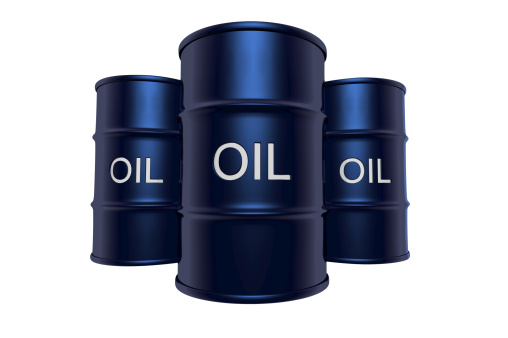
Total gasoline inventories increased by 700,000 barrels last week and remain in the upper half of the five-year average range. Total motor gasoline supplied (the EIA’s measure of consumption) averaged 9 million barrels a day over the past four weeks, up about 1.7% over the same period a year ago.
Distillate inventories rose by 400,000 barrels last week and remain below the lower limit of the average range. Distillate product supplied averaged more than 4 million barrels a day over the past four weeks, up by 2.5% when compared with the same period last year. Distillate production averaged 4.7 million barrels a day last week, about 200,000 barrels below the prior week’s production.
ALSO READ: The Best Value Among U.S. Oil Giants
Tuesday evening, the American Petroleum Institute (API) reported that crude inventories rose by 4 million barrels in the week ending June 20, together with a rise of 2.2 million barrels in gasoline supplies and a drop of 250,000 barrels in distillate supplies. For the same period, analysts estimated a decrease of 2.2 million barrels in crude inventories, a rise of 2 million barrels in gasoline inventories and a rise of 1 million barrels in distillate inventories.
Before the EIA report, West Texas Intermediate (WTI) crude was trading down at around $105.85 a barrel, about 0.2% below Tuesday’s closing price of $106.05. The WTI price fell further to around $105.65 a barrel shortly after the report was released. Within 20 minutes of the report’s release, however, crude had moved back above $106 a barrel.
For the past week, crude imports averaged more than 7.3 million barrels a day, up by 107,000 barrels a day over the previous week. Refineries were running at 88.5% of capacity, with daily input of more than 15.7 million barrels a day, up 275,000 barrels a day compared with the previous week’s average.
The situation in Iraq has lost its position as a leading driver of higher crude prices. The issue now will be the movement toward exporting near-crude, or shall we call it lightly refined crude. Rising inventories of gasoline and diesel fuel should also help moderate prices
According to AAA, the current national average pump price per gallon of regular gasoline is $3.681, up from $3.669 a week ago and from $3.656 a month ago. Last year a gallon of regular cost $3.554 on average in the United States.
ALSO READ: EIA Predicts Higher Gas and Crude Oil Prices
Here is a look at how share prices at three U.S. producers reacted to Wednesday’s report.
Exxon Mobil Corp. (NYSE: XOM) traded down 0.7% at $101.99, in a 52-week range of $84.79 to $104.61.
Chevron Corp. (NYSE: CVX) traded flat at $131.77, in a 52-week range of $109.27 to $133.57.
Continental Resources Inc. (NYSE: CLR) traded up about 1.6% to $153.95, in a 52-week range of $83.71 to $158.10. Continental is the largest producer in the Bakken Shale play.
100 Million Americans Are Missing This Crucial Retirement Tool
The thought of burdening your family with a financial disaster is most Americans’ nightmare. However, recent studies show that over 100 million Americans still don’t have proper life insurance in the event they pass away.
Life insurance can bring peace of mind – ensuring your loved ones are safeguarded against unforeseen expenses and debts. With premiums often lower than expected and a variety of plans tailored to different life stages and health conditions, securing a policy is more accessible than ever.
A quick, no-obligation quote can provide valuable insight into what’s available and what might best suit your family’s needs. Life insurance is a simple step you can take today to help secure peace of mind for your loved ones tomorrow.
Click here to learn how to get a quote in just a few minutes.
Thank you for reading! Have some feedback for us?
Contact the 24/7 Wall St. editorial team.




